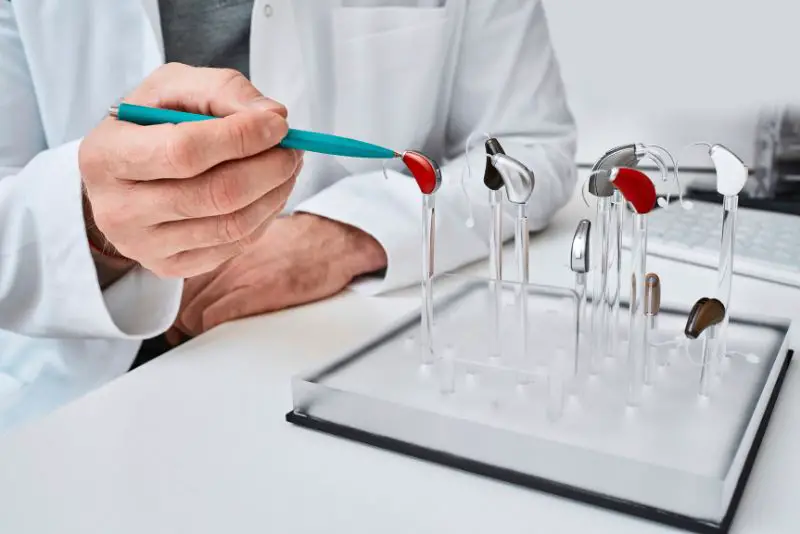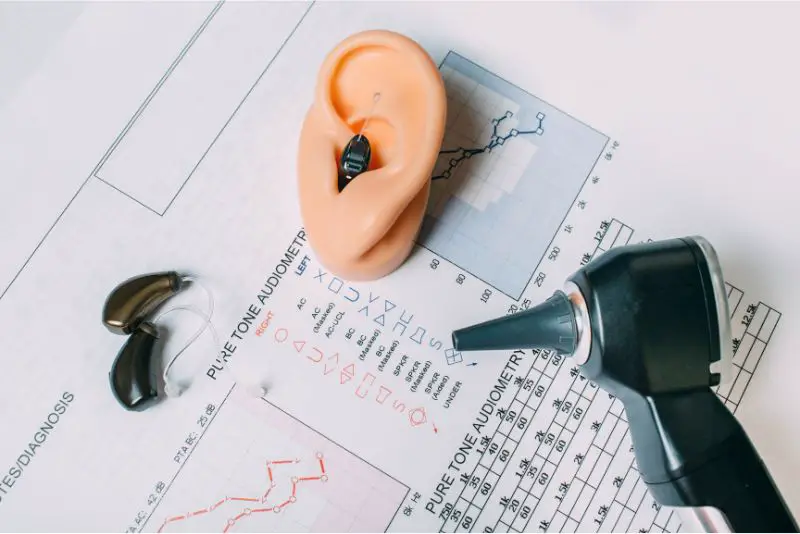Living with hearing loss can be challenging, but thanks to advancements in technology, hearing aids have become an essential tool for individuals with auditory impairments. However, like any other electronic device, hearing aids have a limited lifespan.
Hearing aids typically last from three to seven years, depending on the hearing aid type, manufacturer, service, and the individual using it, according to Associated Audiologists.
Recognizing the signs that indicate the need for new ones is crucial for maintaining optimal hearing health. In this article, we will explore the factors that affect the lifespan of hearing aids and the signs that suggest it may be time for an upgrade.
Factors that Influence the Lifespan of Hearing Aids

The following factors significantly influence how long hearing aids can be used before requiring repair or replacement.
Quality of Hearing Aids
The quality of the hearing aids plays a significant role in their lifespan. Higher-quality devices are often built to withstand daily wear and tear, offering better durability and longevity compared to their lower-quality counterparts. Investing in well-made hearing aids is essential for prolonged use. Here is our review of some of the best hearing aids out there.
Maintenance and Cleaning
Proper maintenance and care greatly influence the lifespan of hearing aids. Regular cleaning of your hearing aids and following care instructions provided by manufacturers can prevent the buildup of debris, wax, and moisture, which can impact the device’s performance.
How often the hearing aids are cleaned and maintained can directly impact their lifespan. Regular cleaning removes debris, wax, and moisture that can accumulate and potentially damage the internal components. Following a cleaning routine recommended by the manufacturer can help ensure the device remains in good working condition.
Materials Used in Manufacturing
The materials used in manufacturing hearing aids can affect their durability and lifespan. High-quality materials, such as robust plastics and corrosion-resistant metals, can contribute to the longevity of the device, ensuring it functions optimally for an extended period.
Environments Where Hearing Aids are Worn
The environments in which hearing aids are worn can also influence their lifespan. Exposure to excessive moisture, extreme temperatures, or dusty environments can negatively impact the device’s performance and durability. Taking precautions, such as using protective covers or avoiding prolonged exposure to challenging environments, can help extend their lifespan.
Storage Practices
Proper storage is crucial in preserving the lifespan of hearing aids. Storing them in a dry and protective case when not in use can prevent moisture, dust, and physical damage. Developing a habit of safely storing hearing aids can contribute to their longevity and overall performance.
Hearing Aid Style
The style of the hearing aid can also affect its lifespan. In-the-ear (ITE) hearing aids are generally more exposed to environmental factors such as moisture and wax accumulation compared to behind-the-ear (BTE) hearing aids.
Individual’s Body Physiology
The physiological characteristics of an individual’s ears can also influence the lifespan of hearing aids. Factors such as excessive earwax production or the presence of moisture can affect the performance and longevity of the device. Regular check-ups with an audiologist can help address any individual concerns and ensure proper functioning of the hearing aids.
Technological Advancements
As technology evolves, so do hearing aids. Newer models often come with enhanced features and capabilities that offer improved performance and longevity. Keeping up with advancements in hearing aid technology and considering an upgrade when necessary can ensure individuals benefit from the latest innovations and extended lifespan.
Changing Hearing Needs
Over time, an individual’s hearing needs may change. This can be due to natural age-related hearing loss progression or other factors. If the current hearing aids no longer meet one’s hearing requirements, it may be an indication to explore new options that can address the changed needs and provide better hearing support.
Signs You Need New Hearing Aids

If your experiencing any of these problems, consult your audiologist for assistance. They can either fix your current devices or recommend new ones.
Constantly Increasing the Volume
If you find yourself frequently needing to increase the volume of your hearing aids to hear clearly, it may be a sign that your current devices are no longer providing optimal amplification. This could indicate a decline in hearing aid performance and the need for new ones.
Hearing Strange Noises
If you notice strange noises, such as buzzing, whistling, or static, coming from your hearing aids, it may be indicative of internal issues or worn-out components. These unusual sounds can disrupt the clarity of sound and may suggest the need for a replacement.
Inability to Hear Anything
If you experience a sudden lack of sound or the inability to hear anything through your hearing aids, it is essential to seek professional guidance. This could be an indication of a malfunction or a complete breakdown of the devices.
Hearing Aids Frequently Falling Out
If your hearing aids frequently fall out or feel loose, it may be a sign that they no longer fit properly. Changes in ear shape or size, weight fluctuations, or wear and tear can affect the fit and functionality of the devices. Consulting with an audiologist can help determine if new hearing aids are necessary.
Discomfort or Fit Issues
Uncomfortable or ill-fitting hearing aids can cause irritation, pain, or soreness in the ears. If you experience ongoing discomfort or fit issues that cannot be resolved with adjustments, it may be a sign that it’s time to consider new hearing aids that provide a better fit and comfort.
Importance of Consulting an Audiologist

Seeking professional guidance from an audiologist is crucial when considering new hearing aids or recognizing signs of decreased performance. An audiologist can evaluate your hearing needs, conduct a comprehensive hearing evaluation, and make personalized recommendations based on your specific requirements.
They can also provide troubleshooting assistance, adjustments, and support throughout your hearing journey, ensuring you find the right solution for your hearing health.
The American Speech-Language-Hearing Association has an excellent guide to finding an audiologist. Remember to consult with an audiologist for professional guidance and recommendations tailored to your specific needs.
Do You Need New Hearing Aids?
Understanding the lifespan of hearing aids and recognizing the signs that you may need new ones is vital for maintaining optimal hearing health. Factors such as the quality of the hearing aids, maintenance and care, materials used, and individual physiology can all influence the devices’ lifespan. Signs such as constantly increasing the volume, hearing strange noises, inability to hear, hearing aids falling out frequently, or experiencing discomfort are all indicators that it may be time for an upgrade.
Disclaimer: The information provided in this article is for educational purposes only and should not substitute professional medical advice. Consult a healthcare professional for personalized recommendations and guidance regarding your hearing health.



